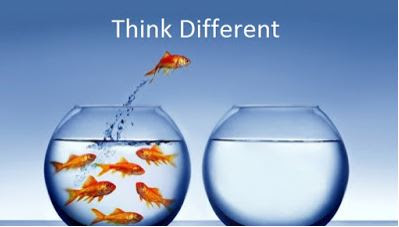The Dilemma of Productivity
As explained by Nima
Sanandaji in his Masterpiece Scandinavian Unexceptionalism: Culture,
Markets and the Failure of Third-Way Socialism in Scandinavian Societies “low
income inequality, low levels of poverty and high economic growth pre-dated the
development of a generous welfare state. Starting in the 19th century, the
people of the Nordic countries created vast amounts of wealth, founded new
firms and industries, and generated societies with high degrees of social trust
and moral responsibility. They built on foundations that, as a result of
their histories (absence of feudalism) were comparatively egalitarian and
mono-ethnic”. Scandinavians and their descendants in the US gathered themselves
formed communities around lutheran churches, adding value to the economy with
high levels of productivity. Consider the following chart reflecting that
Scandinavians and their descendants in the US are actually “richer” (measured
in GDP x capita) than their counterparts in Scandinavia.
The success of the Nordics (and
their descendants) IN the Nordics AND IN the US little had to do with the
Government. It was a cultural success based on a set of shared values,
marked by a mentality shaped by religion. This is clearly explained in Max
Weber s Masterpiece “The Protestant Ethic and the Spirit of Capitalism”.
Weber wrote that capitalism in Northern
Europe evolved when the Protestant (particularly Calvinist)
ethic influenced large numbers of people to engage in work in the secular
world, developing their own enterprises and
engaging in trade and the accumulation of wealth for investment. In other
words, the Protestant work ethic was an
important force behind the unplanned and uncoordinated emergence of
modern capitalism.
Protestantism had supported
worldly activities dedicated to economic gain, seeing them as endowed with
moral and spiritual significance. This recognition was not a goal in itself;
rather they were a byproduct of other doctrines of faith that encouraged
planning, hard work and self-denial in the pursuit of worldly riches. Societies
having more Protestants are those that have a more developed capitalist economy.
Remember that multiculturalism
also means multireligion, and according to the line of thought followed across
all this essay (Conflict Theory) the different ethnic groups that compose
migration waves do not mix but gather themselves in communities. These communities present
different levels of productivity (measured in GDP x capita). This essay shows
evidence that contrary to socialist belief wealth does not cascade down equally
to society as whole, but only amongst those who belong to the same social group.
Being so the communities reside in the same country, but present different
realities. This explains why rich countries also present high levels of
social exclusion, clearly stating that money does not resolve all issues, and
socialism does not achieve equal distribution.
As mentioned before, the solution will not
come from upstairs. Right and left, socialism or free markets, all economic
policy has failed in equalizing opportunities. The communities must acknowledge
this and understand that they must find the solutions themselves. By increasing
their productivy, the created wealth will cascade amongst the members of that
community (and their descendants). Only through sheer, raw, entrepreneurial
spirit can they change their own situation, by adding value to the economy and
improving their own situation and hierarchy in society. They will find
challenges. They do not have the same cultural (at least knowledge of local
mainstream culture) and social capital that locals do. Negative trends in the
productivity of migration (and their descendants) explain the rise of
inequality in developed countries, and must be resolved. The communities must
not reject but embrace their own origin to release the full potential of their
creativity and contribute positively to their own productivity.
According to Karl Marx and his Class Theory,
the burgueoise controls the means of production purchasing the labour power of
the proletarian. Thus the proletariat, in itself, is forced into a subservient
position by the power of capital, which has stripped the means of production
from them. Non-Europeans and their descendants in Europe (and
Argentina), constitute the new proletariat, the new “cheap labour”.
Consider what was mentioned
earlier: in Silicon Valley, only 2% of the workforce is African-American. This
low degree of african-american successful tech entrepreneurs explains the
poorer situation for the afro-american group in the US. By increasing the
amount of afro-american tech entrepreneurs, the situation for the whole group
will improve, as they hire and give more opportunities to other afro-americans.
Revolution 4.0 introduces a new
era of prosperity for the people of Earth. In the past indutries were CAPITAL
intensive, today they are KNOWLEDGE intensive. Establishing a business is
getting cheaper than ever. In a Knowledge based economy Karl Marx´s Class Theory
is teared to PIECES. The burgueoise, previously owners the means of production,
cedes room to a new entrepreneurial proletariat which has free access to
education and information. With
access to Internet, a Laptop and Little investment it is posible today to found
a billion-dollar business. The proletariat, doomed to selling their services
as cheap labour, can now take control of their own fate and situation by
succeding in entrepreneurship.
The government cannot do this job for them, it
can only support and stimulate. The communities must find a way to increase
their productivity themselves so that is cascades to their members and
descendants. Welfare programs give momentary relief, but do not attack the
issue at is core. The communities must learn how to FISH in foreign waters. Revolution
4.0 DESTROYS (or CONFIRMS?) Marx´s Class Theory giving room to the Age of EQUALITY. As the old
saying goes:
“Give a man a fish and
you feed him for a day; teach a man to fish and you feed him
for a lifetime”.


















